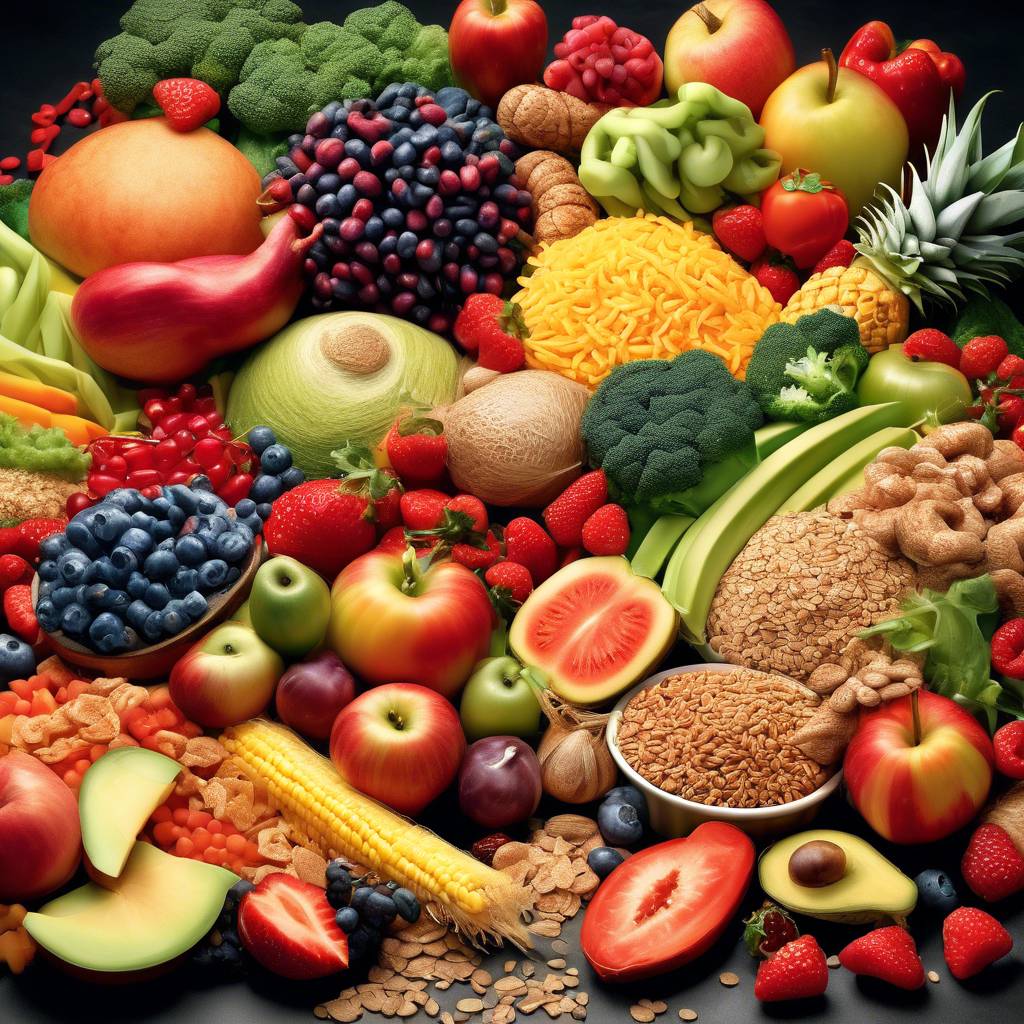Irritable bowel disorder (IBD) affects around 3 million people in the U.S. and is often treated with a low fiber or fiber-free diet during symptom flare-ups. However, a new study suggests that fiber actually plays a significant role in reducing IBD due to its influence on healthy gut bacteria. The study authors plan to further research the interaction between diet, bacteria, and genetics as a path to reducing the development of IBD. IBD can manifest as either ulcerative colitis or Crohn’s disease, and is characterized by inflammation in the gut or digestive tract, leading to a variety of digestive issues.
The study, published in Cell Host & Microbe, suggests a connection between genetics, diet, and gut microbiota that could lead to the development of IBD. Fiber assists in the development of healthy mucus thickness, inhibiting inflammation. For individuals born without interleukin-10, an IBD-related cytokine, IBD typically develops in early infancy or childhood. The study also found that in mice lacking interleukin-10, fiber deprivation contributes to deterioration of the colonic mucus lining, leading to lethal colitis. This suggests that fiber-rich diets may be beneficial for individuals with IBD.
An estimated 6 million people worldwide have IBD, with 3 million in the U.S. as reported by the CDC. Industrialized nations have the highest rates of IBD, with individuals who immigrate to more industrialized societies and incorporate highly processed foods at risk for it. A study published in Gastroenterology last year suggested that certain types of dietary fiber can worsen IBD symptoms. Unfermented dietary β-fructan fibers caused inflammation in people with IBD whose bodies couldn’t break them down. Some individuals with IBD, particularly children, are prescribed a low-fiber diet known as exclusive enteral nutrition (EEN) during flare ups.
The new study using mice lacking interleukin-10 found that inflammation was higher with fiber-free diets, encouraging the growth of mucin-degrading bacteria. Mice on a high fiber diet had less inflammation. However, research suggests that an EEN diet formula resulted in less inflammation in some mice due to higher amounts of isobutyrate produced by fermentation in the gut by “good” bacteria. Dr. Rudolph Bedford notes that lower-fiber diets for IBD patients haven’t been studied enough for a standardized approach. Melanie Murphy Richter suggests that while a low-fiber diet may be advisable during acute flare-ups, long-term high-fiber diets show promise for the management and reversal of IBD.
Gut health is closely tied to immune and mental health, with healthy gut bacteria playing a significant role in strengthening the intestinal barrier and producing neurotransmitters needed for brain function. Richter advises avoiding alcohol, processed foods, and products with high-fructose corn syrup that can cause gut inflammation and dysbiosis, worsening IBD symptoms. She recommends consuming fermented foods with probiotics and healthy forms of fiber from fruits and vegetables to feed healthy gut bacteria. Probiotic-rich foods such as kimchi and yogurt contain living bacteria beneficial for overall gut health, helping alleviate IBS and IBD symptoms such as abdominal pain, bloating, or constipation. A combination of probiotic supplements, fermented foods, and a fiber-rich diet can contribute to maintaining optimal gut health.









